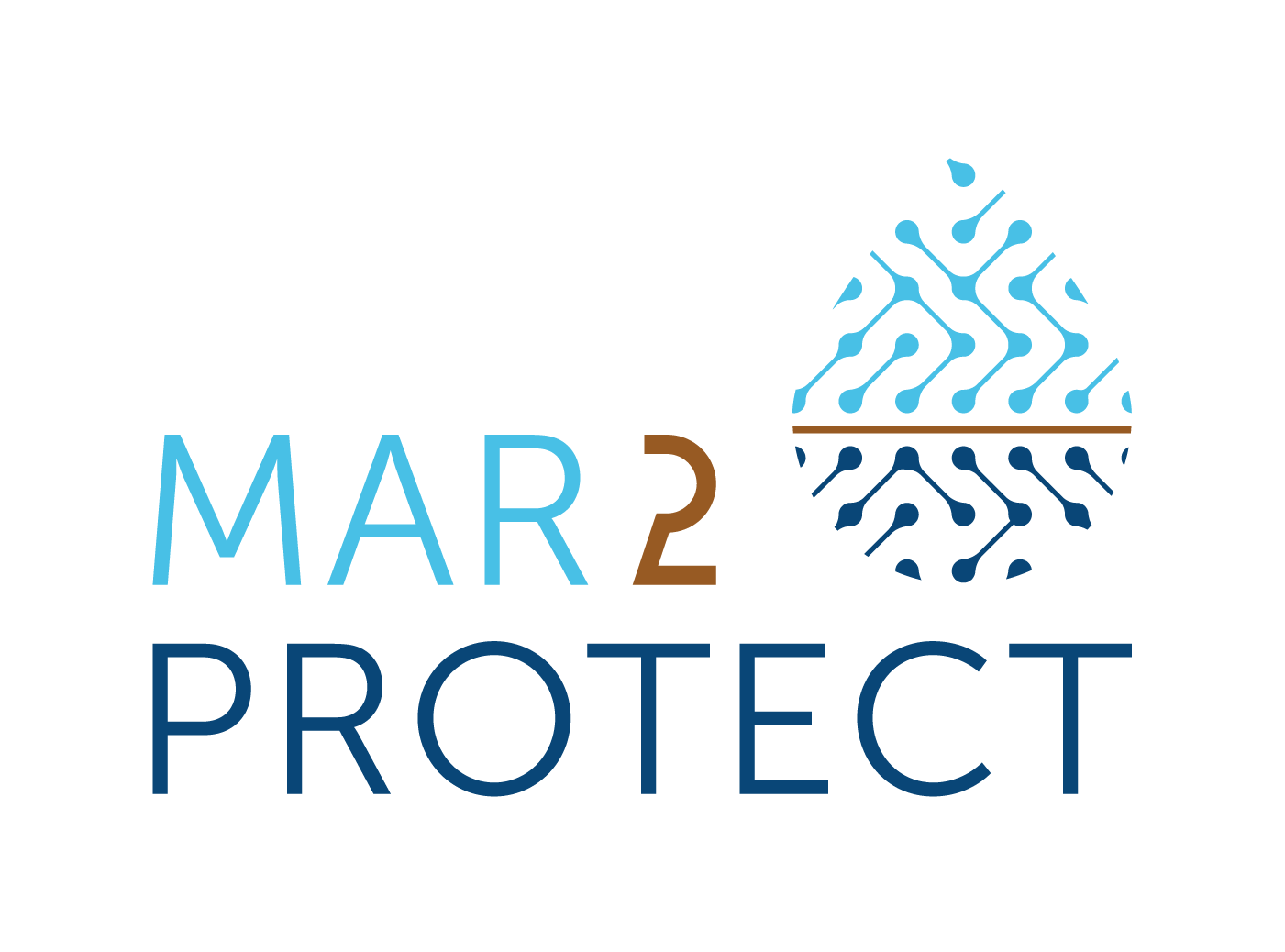Take a look at our consortium
Balanced consortium
The consortium is balanced with 11 partners; 9 from 6 different European-countries (including Switzerland) and 2 international partners (Tunisia, South Africa) as follows: 3 Universities: UNIBO (Italy), KTU (Lithuania) and SU (South Africa); 6 Research and Technology Organizations: NOVA (Coordinator-Portugal), CETAQUA Andalucía (Spain), CIIMAR (Portugal), IHE DELFT (Netherlands), IT (Portugal) and ISSBAT (Tunisia), 1 Tech transfer entity: FEU (Spain). 1 Industrial: AQUATEC (Spain), affiliated with CETAQUA Andalucía.
The consortium covers Europe from South to North, including an Eastern partner (Lithuania) with complementary skills in water research. 2 international partners, located in South and North of Africa, (the Republic of South Africa and Tunisia) will provide 2 demo sites, with different characteristics and will ensure a strong international collaboration within the project.
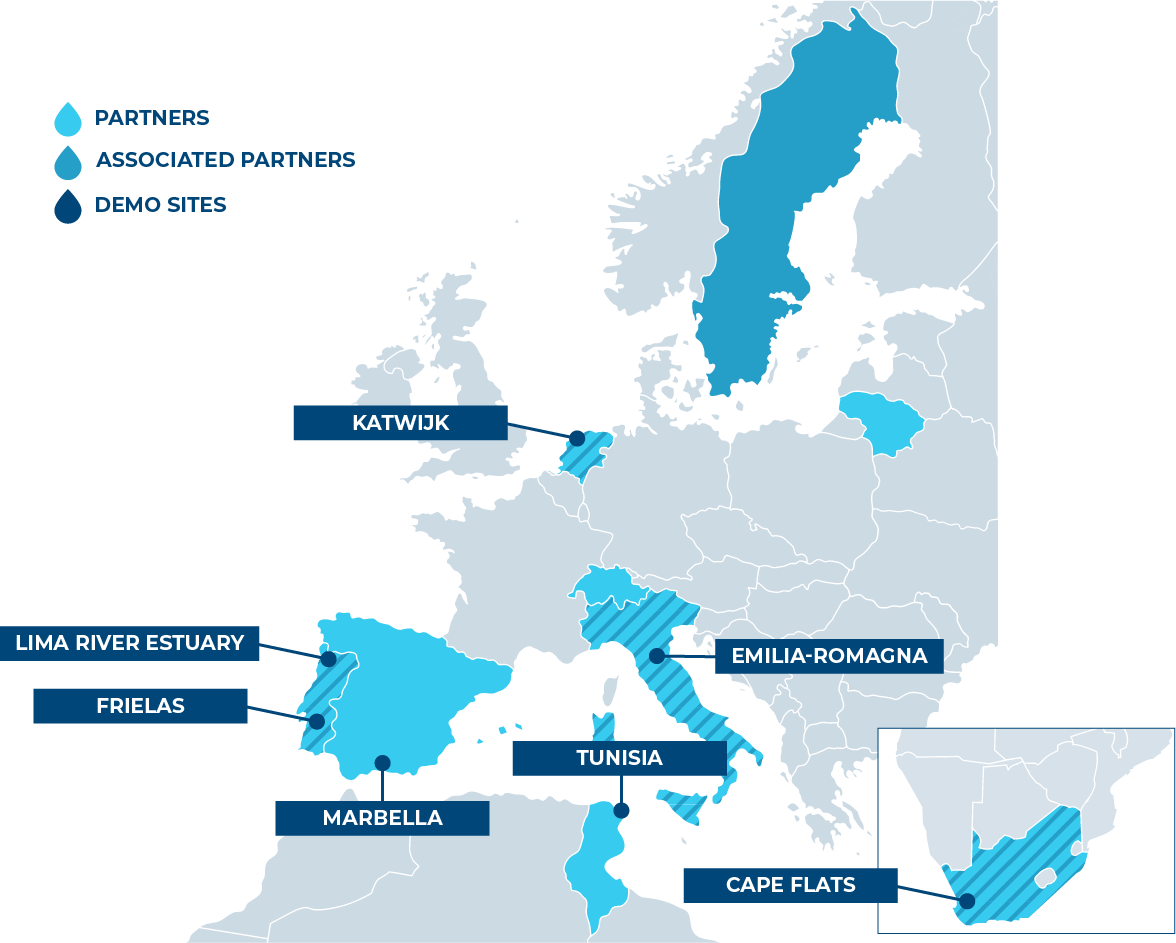
Partners
Eu countries
International
Partners
NOVA
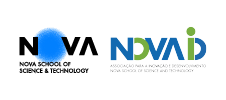
Associação para a Inovação e Desenvolvimento da Faculdade de Ciências e Tecnologia da Universidade Nova de Lisboa (NOVA) is a private non-profit research organisation dedicated to Research and Development and Innovation activities, recognised by the Portuguese National System of Science and Technology of Fundação para a Ciência e Tecnologia. NOVA, based at Nova School of Science and Technology (FCT NOVA), acts as the legal institution of R&D units, carrying out R&D work and managing financial and administratively R&D&I projects. NOVA, founded in 1977, is one of the most prestigious Portuguese and European engineering and science public schools. NOVA’s has internationally recognised professionals due to their high potential in R&D+I activities, with researchers awarded ERC grants (8 in total), experience in managing circa over 211 European-funded projects (across both FP7 and H2020), bringing together over 100 individual researchers, for an overall worth of 50€ million in funding. In this project the participation is through the Research Units: LAQV@REQUIMTE and UCIBIO.
Website: https://www.fct.unl.pt/
Team involved
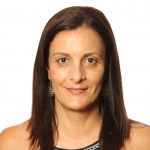 Ana B. Pereiro
Ana B. Pereiro
Coordinator, WP1 leader
Website: https://laqv.requimte.pt/people/320-ana_b_pereiro
LinkedIn: https://www.linkedin.com/in/ana-bel%C3%A9n-pereiro-est%C3%A9vez-8751a2164/
Ana B. Pereiro pursued her doctoral studies in Chemical Engineering, and in 2008 was awarded the PhD with a Cum Laude distinction, receiving the Best Thesis Award. She is a Principal Investigator at LAQV, FCT NOVA and the coordinator and principal investigator of 6 projects: 1 industrial contract, 3 FCT I.P. (PT) projects and 3 international projects (coordinator). Projects are strongly dedicated to the removal, separation and extraction of emerging pollutants and to the recycling and recovery of fluorinated compounds. She has published 95 papers with an accumulated impact factor (IF) of 456. Her work has accumulated 4806 citations and a h-index of 39 and a i10-index of 81. During the last 5 years, she has also led 6 research projects: 1 industrial contract, 3 European projects (2 as coordinator (5887 k€, with 1146 k€ for our team) and 1 as Portuguese coordinator with 260 Keuros) and 2 Portuguese from FCT projects (a total of 440 k€ managed). In 2020, she was identified as a thought leader in chemical engineering & applied chemistry (I&EC Research’s 2020 Class of Influential Researchers).
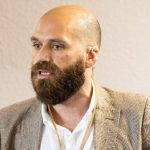 João M. M. Araújo
João M. M. Araújo
Co-coordinator, WP2 leader
Website: https://laqv.requimte.pt/people/321-joao_miguel_mendes_de_araujo
Doctor in Chemical Engineering (PhD Dec. 2009), Senior Researcher (since 01-03-2015). Author of 65+ publications in international peer reviewed journals (Index H = 29, H10 = 60, 3617 citations), 70 proceedings in national/international conferences, 180+ contributions in national/international conferences (12 invited oral communications, 55 oral communications and 119 poster communications). He has participated in 18 funded projects (5 of them EU). His research experience encompasses areas from liquid chromatography field, mainly in the intensification of the simulated moving bed technology, to the development of ionic liquids and deep eutectic solvents as novel, advanced, smart materials (critical evaluation in the field of green chemistry) and their study in separation/purification processes, aqueous biphasic systems, solubilisation and aggregation mechanisms, biomass valorisation, drug delivery, as well as the development of pharmaceutically active ionic liquids and deep eutectic solvents. Additionally, it focusses the development of technologies for the removal and implementation of circular economy for fluorinated compounds (greenhouse fluorinated gases (F-gases) and PFAS).
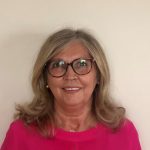 Maria Reis
Maria Reis
Researcher in WP2 and WP5
Website: https://sites.fct.unl.pt/bioeng/people/maria-am-reis
Maria Reis is a Full Professor in Environmental Biotechnology at FCT-UNL. Main research interests have been in the area of Environmental/Industrial BioEngineering, with special focus on the development of sustainable bioprocesses for the removal of pollutants from water and wastewater streams and for the exploitation of industrial wastes for the production of biopolymers and bulk chemicals, in the scope of circular economy. She is the head of the research group BIOENG at FCT-UNL ( http://sites.fct.unl.pt/bioeng/people/maria-m-reis).Within this research area, published more than 200 papers in scientific journals with peer review. Is co-author of 4 National patents and 6 International patents. Coordinated 20 national and international projects (team leader), out of which 18 European Projects and 6 were co-funded by industrial companies, and participated as team member in 22 research projects. Elected as IWA Fellow, September 2010. She is Editor of the Water Research (Elsevier).
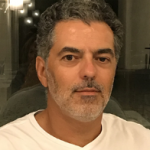 José Paulo Mota
José Paulo Mota
Researcher in WP2 and WP5
Website: https://www.dq.fct.unl.pt/en/staff/professors/jose-paulo-barbosa-mota
LinkedIn: https://www.linkedin.com/in/jos%C3%A9-paulo-mota-6382951a/
José P. Mota obtained his PhD in Chemical Engineering in 1996. He is presently a full Professor with Aggregation at FCT NOVA, member of the board of the LAQV. His research focus on: a) Gas storage and separation by cyclic adsorption processes: Adsorbed natural gas, pressure swing adsorption (PSA), hybrid processes combining PSA and membrane permeation; b) Molecular simulation; c)separation of fine chemicals, pharmaceuticals and biomolecules by adsorption and chromatographic processes: simulated moving bed (SMB), semi-continuous multicolumn chromatography, GSSR; d) Nanotechnology: characterization of nanotubes and metal-organic frameworks and their use as adsorbents, molecular probes, and drug-delivery agents; e) Modelling and optimization of separation processes: SMB, PSA, supercritical fluid extraction; f) Mixing and heat transfer by chaotic advection. He has more than 145 published papers and has participated in several European projects and other international projects funded by NATO and Portugal/USA scholarship programs and 12 national projects. He will contribute with solid know-how in the optimization of adsorption and gas separation processes, as well as in the characterization and application of materials as adsorbents.
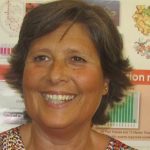 Isabel Fonseca
Isabel Fonseca
Researcher in WP2 and WP5
Website: https://laqv.requimte.pt/people/38-isabel_maria_figueiredo_ligeiro_da_fonseca
Associate Professor at Faculdade de Ciências e Tecnologia (FCT) of Universidade Nova de Lisboa (UNL) since 2012. PhD in Chemical Engineering (Heterogeneous Catalysis) from FCT-UNL (1983); Master in Chemistry of the Catalytic Processes from Instituto Superior Técnico (1986); graduated in Chemical Engineering from Instituto Superior Técnico (1982). Invited Professor at Pennsylvania State University (USA) (1993-1996). Participated as main researcher or as research member in 20 International and National projects. Participated in 140 international and national conferences. Published 163 papers in peer-reviewed international scientific journals of high scientific impact (H41) and several book chapters. Research interests: Catalysis, Porous materials, Adsorption.
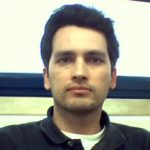 Mario Diniz
Mario Diniz
Researcher in WP2 and WP5
Website: https://www.dq.fct.unl.pt/en/staff/professors/mario-emanuel-campos-de-sousa-diniz
LinkedIn: https://pt.linkedin.com/in/m%C3%A1rio-diniz-8bbb5040
Mário S. Diniz has a MSc and a PhD in environmental sciences and is Assistant Professor at the Chemistry Department at NOVA SCHOOL OF SCIENCE AND TECHNOLOGY (FCT-NOVA). He is an integrated member of the “Research Unit on Applied Molecular Biosciences (UCIBIO) and is the head of the research lab “Biotox Lab”, focused on Environmental Health, Safety and Toxicology. His research is mainly focused on studying contaminants and their the effects on organisms, the use of biomarkers of response and effect (e.g. proteins, antioxidant enzymes); climate change effects and organisms stress responses, the development of biosensors and immunoassays for food quality assessment. He is author or co-author of 10 book chapters, 150 articles in SCI journals, 3 articles in national peer review Journals, 40 articles in conference proceedings (peer-reviewed), more than 140 posters presented in scientific conferences and more than 90 oral communications presented in scientific conferences.
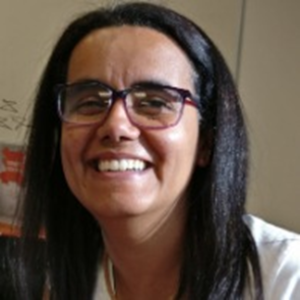 Inés Matos
Inés Matos
Researcher in WP2 and WP5
Website: https://laqv.requimte.pt/people/197-ines_matos
LinkedIn: https://www.linkedin.com/in/ines-matos-8b52816/
Inês Matos is graduated in chemical engineering by FCT/NOVA (2001) and completed the PhD in chemical engineering/ catalysis in 2007 at Instituto Superior Técnico (IST) of the University of Lisbon (UL) focused on heterogeneous catalysts. Since 2008, Inês Matos is an integrated researcher at LAQV/REQUIMTE research unit, first as a Post-doctoral fellow and since 2015 as an Assistant Researcher. The work developed focus on environmental catalysis and green chemistry, and has been centered in synthesis and characterization of carbon materials and catalysts, and their application in adsorption processes for water treatment as well as in catalytic reactions for the synthesis of compounds with high added value. In the last years several synthetic and biomass waste derived carbons were obtained and studied, not only in environmental remediation but also in catalysis.
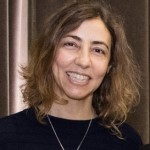 Nídia Dana Lourenço
Nídia Dana Lourenço
Researcher in WP2 and WP5
Website: https://sites.fct.unl.pt/bioeng/people/nidia-lourenco
LinkedIn: https://www.linkedin.com/in/nidialourenco/
Nídia Dana Lourenço is a Chemical Engineer (5-years, minor in Biotechnology) and a PhD in Biotechnology by IST-ULisboa. She was Research Scientist at the Atral-Cipan pharmaceutical group, Post-doc Fellow at iBB-IST, Invited Assistant Professor at the University of Algarve, and Collaborating Assistant Professor at IST – Department of Bioengineering. In 2018 she joined BIOENG-UCIBIO at NOVA School of Science and Technology as Senior Researcher and her current research interests are focused on wastewater treatment using aerobic granular sludge and on waste valorisation using flocculent and granular mixed microbial cultures. She integrated 3 national projects as PI and 16 research projects as team member, including 8 European projects. Her publication record includes 5 book chapters, 34 papers in Web of Science journals, 2 papers in national journals and 1 national patent. It also includes 8 invited seminars, 30 platforms and 44 posters, mostly at international conferences.
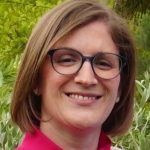 Maria Bernardo
Maria Bernardo
Researcher in WP2 and WP5
Website: https://laqv.requimte.pt/people/100-maria_bernardo
LinkedIn: https://www.linkedin.com/in/maria-bernardo-97098858/
M. Bernardo has been a researcher at NOVA School of Sciences and Technology since 2014. Graduated in Chemical Engineering (2005), MSc in Energy and Bioenergy (2011) and PhD in Energy and Bioenergy (2013). Since 2014 she has been an integrated researcher at LAQV/REQUIMTE research unit. Published 52 articles in scientific international journals and 3 chapter books, and has an H-index of 21. Participated in 61 international and national conferences. Participates and/or participated as research member in 5 projects. The focus of M. Bernardo research relies on themes such as biomass valorization, porous carbon materials, adsorption processes, water treatment, bioenergy.
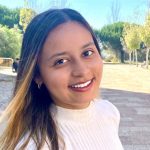 María C. Naranjo
María C. Naranjo
PhD student in WP2 and WP5
Website: https://laqv.requimte.pt/people/2871-maria_camila_naranjo_garcia
LinkedIn: linkedin.com/in/maría-camila-naranjo-garcía-129843253
María Camila Naranjo has a MSc in Chemical Engineering and is currently a Ph.D. student in Chemical Engineering at the Nova School of Science and Technology (FCT-NOVA). She has acquired experience focused on the synthesis and characterization of ionic liquids, extraction, adsorption, absorption, thermodynamics, and material characterization of solid porous matrices for the removal of fluorinated pollutants from water with the aim of developing sustainable processes that reduce the environmental impact of these substances in the environment.
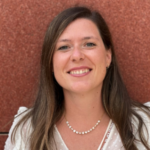
Srdana Kolakovic Oliveira Barreiros
PhD Researcher/Research Manager
https://www.linkedin.com/in/srdana-kolakovic-oliveira-barreiros-09958494/
Dr. Srdana Kolakovic Barreiros obtained two MSc diplomas in environmental sciences, one from University of Novi Sad, Serbia and the other from University of Florence Italy. Afterwards, she pursued doctoral studies in Chemical and Biochemical Engineering at the University NOVA of Lisbon and obtained her diploma in January 2022. During her studies she was awarded by several scholarships (Erasmus, EIT – KIC Raw materials, the scholarship for young talents of the Republic of Serbia etc) and was involved in 4 international projects. In addition, during her PhD she was involved in teaching and supervising activities at the University of Novi Sad and FCT, NOVA. She has a vast experience in lab-scale and pilot reactor operation with her main areas of interest in wastewater treatment, phosphorus removal and recovery, micropollutants removal and water management. Srdana has published several scientific publications in international journals and presented her research in international conferences.
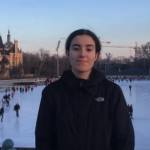
Joana Batista
Research Assistant in WP2 and WP5
https://www.linkedin.com/in/joana-batista20
Joana Batista has a BSc in Microbiology and is currently finishing her MSc in Biotechnology at the Nova School of Science and Technology. She has acquired experience in anaerobic digestion for bioenergy production, alternative biomass pre-treatments, biomass valorisation, bacterial immobilization, and wastewater treatment.
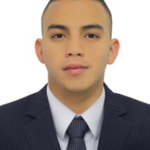
Jhon Alexander Pulido Aguilar
Master’s student
www.linkedin.com/in/jhon-pulido-09548a208
Jhon Alexander Pulido Aguilar is a MSc student of the University of Pamplona and is developing his final work at the Nova School of Science and Technology (FCT-NOVA) focused on the preparation, characterization and adsorption of porous solid matrices and biomaterials as deep eutectic solvents (DES) for the extraction and detection of water pollutants such as fluorinated substances and pharmaceuticals for the prevention and minimization of the long-term effects generated by their persistence in the environment.
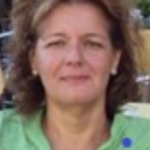
Maria João Nunes
Researcher in WP2 and WP5
https://www.linkedin.com/in/maria-jo%C3%A3o-nunes-bb2527142/?originalSubdomain=pt
Maria João Marques Nunes concluded her PhD. in Analytical Chemistry in 2002 at the University of Lisbon, her MSc in Physical Chemistry in 1994 at the Faculty of Sciences of the University of Lisbon (FCUL), her BSc in Teaching Physics and Chemistry in 2006 at FCUL and her BSc in Technological Chemistry in 1991 at Department of Chemistry and Biochemistry of FCUL. She is an Assistant Researcher at LAQV, REQUIMTE, at NOVA School of Science and Technology (FCT-NOVA). Current Research interests are in bioanalytical chemistry with development of analytical tools for biomarkers detection (identification and quantification) in health and environmental sciences in the fields of instrumental analytical chemistry and sensing. She has a strong background in Analytical Chemistry Research with scientific expertise in chromatography, spectroscopy, spectrometry, electrochemistry, elemental analysis and flow injection analysis.
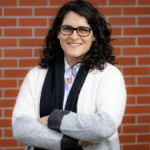
Liliana C. Tomé
Researcher in WP2 and WP5
https://www.linkedin.com/in/lilianactome
Dr. Liliana C. Tomé received her MSc in Materials Derived from Renewable Resources (2008) from University of Aveiro and a PhD in Chemical Engineering (2014) ITQB NOVA, Portugal. After a post-doc (2015–2018) at ITQB, she moved to POLYMAT – University of the Basque Country (Spain) with a Marie Skłodowska-Curie Individual Fellowship. In 2020, she joined LAQV-REQUIMTE, NOVA School of Science and Technology | FCT NOVA, where she is an Assistant Researcher. She received the L’Oréal Portugal Medal of Honor for Women in Science 2020. Author of +68 publications (h-index = 30, Scopus), her main areas of research are currently centered on iongels, ionic liquids and deep eutectic solvents-based materials for membrane technology and sensors.
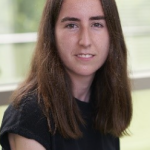
Elena Gabirondo
Researcher in WP2 and WP5
https://www.linkedin.com/in/elena-gabirondo-amenabar-88b788163/?originalSubdomain=es
Elena Gabirondo obtained her Master’s in Chemistry and Polymers in 2018 from the same university. In 2018, Elena obtained a pre-doctoral scholarship (FPI-2018) and defended her doctorate in Chemistry in the Applied Chemistry and Polymeric Materials program in 2022. During her research career, Elena has carried out teaching tasks and has co-directed a Final Master’s Project and supervised PhD students. Author of 10+ articles in Q1 on the synthesis and recycling of polymeric materials. In 2023, she obtained a postdoctoral grant from the Basque Government to carry out her research career for two years at NOVA School of Science and Technology and another year at POLYMAT (Spain).
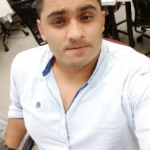
Julio Eduardo Sosa Parra
PhD student
https://www.linkedin.com/in/eduardo-sosa-4490144b/
Julio Eduardo Sosa Parra completed his degree (5 years) in Chemical Engineering in 2017 at the University of Pamplona (Colombia), with a Cum Laude distinction. Currently, he is pursing the investigation at LAQV – REQUIMTE, NOVA School of Science and Technology (FCT NOVA), NOVA University of Lisbon and he is a PhD student in Sustainable Chemistry at FCT NOVA. However, his collaboration with the University of Pamplona is on-going receiving invitations to lecture in some disciplines there. Finally, his research work has produced very high-quality results confirmed by several communications in international conferences (reflected in my Curriculum Vitae: 3 oral communications and 7 posters, all of them as the first author) and by the number of scientific papers already published or submitted for publication (8 published and two still in preparation, as first author). In these papers, Julio Eduardo Sosa Parra have also collaborated with researchers from France, Colombia, and Spain.
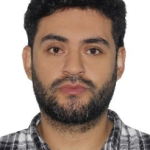
Didier Mauricio Rodriguez Sánchez
Research fellow in Mar2Protect
https://www.linkedin.com/in/didier-mauricio-rodriguez-sanchez-6b26a0a5/
Didier Sanchez is a Chemical engineer and PhD Student at Bio(chemical) Process Engineering Group, NOVA School of Science and Technology | FCT NOVA, working on the preparation and characterization of innovative materials to develop and implement efficient technologies to remove emerging contaminants in wastewater, reducing groundwater contamination.
UNIBO

Founded in 1088, the Alma Mater Studiorum – Università di Bologna (UNIBO) is known as the oldest University of the western world. UNIBO still is one of the most important institutions of higher education across Europe and the second largest university in Italy with 11 Schools, 33 Departments and more than 84.000 students. UNIBO is one of the most important institutions of higher education across the EU and the second Italian University in access to EU funding. UNIBO has gained a considerable experience in International and European research projects. On the European side, Unibo is member of the major European Networks and stakeholders thematic groups.
Website: https://www.unibo.it/en/homepage
Linkedin: https://www.linkedin.com/school/unibo/mycompany/verification/
Facebook: https://www.facebook.com/unibo.it/
Team involved
Dario Frascari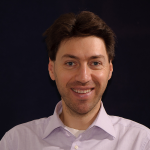
Technical-Scientific Coordinator, WP5 leader
Website: https://www.unibo.it/sitoweb/dario.frascari/en
Dario Frascari is Associate Professor at the University of Bologna and holds a Ph.D. in Chemical & Environmental Engineering. He has been the scientific coordinator of the MADFORWATER Horizon 2020 project, focused on the development of technologies and management tools for wastewater treatment and reuse in North Africa. He participated in numerous EU and national research projects. His research focuses on the development, modelling and scale-up of processes for the treatment and valorization of wastes and wastewater, with specific focus on the recovery of nutrients and antioxidants by adsorption and extraction and on the bioproduction of chemicals and biofuels. He also worked on the biodegradation of chlorinated hydrocarbons in groundwater. He published 43 articles in international scientific journals with IF and 8 chapters in international series and books, with a Scopus H-index equal to 21. He teaches “Plants for the treatment of wastewater and flue gas”, “Technologies for environmental protection” and “Laboratory of chemical and biochemical reactors” to Chemical and Environmental Engineering master students.
Laura Sisti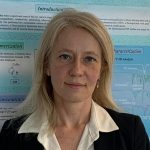
Responsible for the Molecular Imprinted Polymers (MIP) development, Demo site 4
Website: https://www.unibo.it/sitoweb/laura.sisti/en
Associate professor, she conducts researches in macromolecular chemistry in particular, on the synthesis and characterization of new polymer materials and on the preparation of composites and nanocomposites. Currently, she focuses the research on polymers from renewable sources and their mechanical reinforcement with natural fibers and inorganic fillers, on the valorization of industrial agro-industrial wastes and on the end of life of polymer materials.
She’s co-author of about 60 publications and Partner in several European Projects (H2020): NoAW, Agrimax, PROLIFIC, Usable Packaging, Preserve, Agriloop. She is scientific Coordinator of the research unit of UNIBO in the European Project (H2020) TERMINUS.
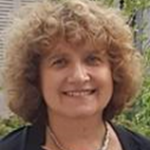 Annamaria Celli
Annamaria Celli
Researcher for the Molecular Imprinted Polymers (MIP) development, Demo site 4
Website: https://www.unibo.it/sitoweb/annamaria.celli/en
Annamaria Celli has a PhD in Materials Engineering and is associate professor at the University of Bologna. She works in the field of polymer science, specifically in polymer synthesis and characterization, mainly in polymers derived from biomass, composites and nanocomposites. Today her activities focus on the valorization of agro-waste and by-products of food-industries, on the end of life options of plastics. She is scientific responsabile for UNIBO of the H2020 projects NoAW, Agrimax, Usable Packaging, Preserve and Agriloop. She is also involved in the Terminus project.
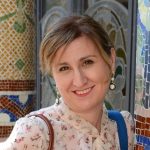 Micaela Vannini
Micaela Vannini
Researcher for the Molecular Imprinted Polymers (MIP) development, Demo site 4
Website: https://www.unibo.it/sitoweb/micaela.vannini/en
Micaela Vannini is Senior Assistant Professor in Principles of Chemistry for Applied Technologies at the University of Bologna Her skills mainly concern the preparation and characterization of novel polymeric materials with peculiar final properties, usually polycondensates as polyesters and polyamides (especially focused on the synthesis from monomers and NMR characterization), composites and nanocomposites. She is co-author of more than 50 publications in peer reviewed international journals and she is involved in three H2020 European Projects: NoAW, ProLiFiC and Usable Packaging.
Paola Marchese 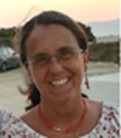
Researcher for the Molecular Imprinted Polymers (MIP) development, Demo site 4
Laboratory technician, she took a PhD in Industrial Chemistry at the University of Bologna. Her expertise mainly concerns the preparation and thermal characterization of polymeric materials and composites. She’s a co-author of about 60 publications and currently involved in the H2020 European Projects (Prolific, Usable Packaging, Terminus, Reskiboot and Preserve).
Giulio Zanaroli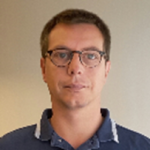
Responsible for the development of Membrane Areated Biofilm Reactor for pollutant biodegradation (WP2)
Website: https://www.unibo.it/sitoweb/giulio.zanaroli
Associate professor at the Department of Civil, Chemical, Environmental and Materials Engineering of the University of Bologna, where he teaches mainly industrial and environmental biotechnologies and bioremediation technologies. Giulio Zanaroli holds a PhD in Applied Biocatalysis and Industrial Biotechnology. His main research interests reside in environmental microbiology and biotechnology, with specific reference to the study of the aerobic and anaerobic biodegradation of aromatic, aliphatic, chlorinated and non-chlorinated xenobiotics, as well as emergent and less common pollutants, and the microbial communities in charge of the degradation process. He’s been involved in several EU research projects funded in the H2020 and HORIZON programs (MADFORWATER – of which he is co-coordinator, NoAW, Agrimax, INMARE, BIOWAYS, ELECTRA, TERMINUS, PRESERVE, TRIBIOME and, more recently, NYMPHE, as coordinator) and 1 JPI-Ocean project (PLASTOX), and he participated in 7 EU research projects funded in the 7th framework program (KILLSPILL, BIOCLEAN, ROUTES, ECOBIOCAP, ULIXES, MINOTAURUS, NAMASTE). He published 59 articles in international scientific journals with >1600 citations (Scopus H-index, 26).
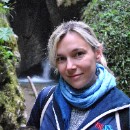 Elena Biagi
Elena Biagi
Researcher in pollutant biodegradation (WP2)
Website: https://www.unibo.it/sitoweb/elena.biagi
Senior Researcher at the Department of Civil, Chemical, Environmental and Materials Engineering of the University of Bologna. Elena Biagi holds a PhD in Applied Biocatalysis and Industrial Biotechnology. Her main research interests reside in environmental microbiology, in particular in terms of compositional and functional characterization of environmental microbial communities involved in process of interest. She acted as Scientific Project manager for a EU funded H2020 project (CIRCLES) and is involved in other HORIZON EU projects (TRIBIOME, NYMPHE). She published 90 articles in international scientific journals with >6000 citations (Scopus H-index, 38).
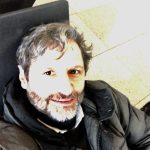 Davide Pinelli
Davide Pinelli
Researcher in micropollutant adsorption (WP2) and scale-up in micropollutant removal process (WP5)
Website: https://www.unibo.it/sitoweb/davide.pinelli/en
Davide Pinelli iis Associate Professor at the University of Bologna and holds a Ph.D. in Industrial Chemistry. He participated in numerous EU and national research projects. His research focuses on the development, modelling and scale-up of processes for the treatment and valorization of wastes and wastewater, with specific focus on the recovery of nutrients and antioxidants by adsorption and extraction and on the bioproduction of chemicals and biofuels. He also worked on the biodegradation of chlorinated hydrocarbons in groundwater. He published more than 80 articles in international scientific journals with IF, with a Scopus H-index equal to 25. The teaching activities of Prof. Davide Pinelli started in 1992 in the following courses: Unit Operations of Chemical Engineering, Laboratory of Unit Operations of Chemical Engineering, Chemical Reaction Engineering, Laboratory of Chemical Reaction Engineering, Biochemical reaction engineering, Bioreactors.
Valentina Ciriello
Researcher in modelling groundwater flow and transport
Website: https://www.unibo.it/sitoweb/v.ciriello/en
Valentina Ciriello is Associate Professor in Hydraulics at the University of Bologna. She is doing research in the fields of fluid mechanics and uncertainty quantification and since 2010 she authored more than 80 scientific publications among conference proceedings and papers in international journals. She has been working on flow and transport in porous media and she is an expert in meta-modelling techniques (both physically-based response surface methods and data-driven machine learning techniques) used to derive relevant relationships between governing parameters and selected quantities of interest and to accelerate stochastic analysis like risk assessment and global sensitivity analysis that are critical for decision-making under uncertainty. She has been involved in several National and EU projects (also with the role of local coordinator) and in public engagement events to raise public awareness on a sustainable use of water resources and climate change. She is Associate Editor of Stochastic Environmental Research and Risk Assessment (Springer) and Journal of Hydrology (Elsevier)
FEUGA

FEUGA has a dedicated department of European Programmes, consisting of a team with more than 10 years’ experience in EU projects. This department promotes the participation of research groups from the Galician universities, as well as from industry, in European and international research & innovation initiatives and actions through tailor-made advice.
FACEBOOK: https://es-es.facebook.com/fundacion.empresa.universidad.gallega/
TWITTER:@FEUGA_20
LINKEDIN:FEUGA. Fundación Universidad Empresa Gallega: Mi empresa | LinkedIn
YOUTUBE: https://www.youtube.com/channel/UCUmcnbhjFV625VmhcfOD_WA
Team involved
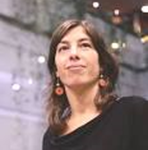 Tamara Rodríguez Silva.
Tamara Rodríguez Silva.
WP7 Leader
Tamara Rodríguez Silva | LinkedIn
Degree in Journalism from the University San Pablo CEU (Madrid, Spain), PGCert. in Audiovisual Communication, and PGCert. in Patents, Trademarks, Copyright and Competition both from University of Santiago de Compostela (USC, Spain).
MSc. in Business Communication from University of La Coruña (UDC, Spain) and MSc. in Corporate Sustainability and Social Responsibility from National Distance Education University and University Jaume I Castellón (UNED and UJI, Spain). Certified by GRI on G4 reporting Guidelines.
She is an expert on communication, innovation and sustainability with more than 10 years of experience in consultancy on entrepreneurship, culture, European funds at public and private entities with emphasis on SMEs development.
Before joining FEUGA in September 2019, Tamara worked at several media and more recently at ACIS (Galician Agency for Knowledge and Health Innovation) and GAIN (Galician Agency for Innovation). ANIS (Spanish association health journalists) member.
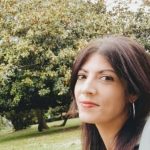 Noelia Vilar Vidal.
Noelia Vilar Vidal.
Exploitation Manager
Technology transfer manager (Innovation & Valorization) in the Innovation HUB of FEUGA, PhD in Physical Chemistry & nanotechnology. Degree in Chemistry (Physical and Organic chemistry), Msc. Advanced Chemistry (nanomaterials) from the University of Santiago de Compostela (USC). More than 10 years of experience in several entities carrying out R&D activities, INL (International Iberian Nanotechnology Laboratory), CNRS (Centre National de la Recherche Scientifique) and SGG (Saint-Gobain Glass) among others, performing technical execution and management of R&D and innovation projects in public and private sectors in transversal fields to nano/material sciences covering diverse areas of development ranging from catalysis, biotechnology or building materials among others.
Experience as IPR Manager in ongoing European Projects and related setting up start-up/SME businesses ideas, market entry and grown strategies support.
Previously she has worked as R&D technology transfer project leader in the private sector being responsible of the management, IP strategy, benchmarking analysis and project definition of innovative R&D projects & products. Participation (technical development/ IP management) in more than 20 R&D international projects, 9 publications in peer-reviewed journals (ORCID ID: 0000-0002-0911-1677) and assistance to more than 20 scientific congress.
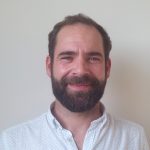 Joao Francisco Domingues de Azevedo.
Joao Francisco Domingues de Azevedo.
Innovation & EU Programmes Manager at FEUGA.
B.Sc. in Mechanical Engineering and wood technology; Msc. (Eng) in Logistics of Biomass; Phd in Renewable Energy and Sustainability; Post doc in Circular Economy with specialization on large scale Industrial Symbiosis process implementation. Joao has an extensive research background in the field of renewable energies and applied circularity and a wide experience working in European and national R&D projects preparation and management.
CENTRO INTERDISCIPLINAR DE INVESTIGACAO MARINHA E AMBIENTAL
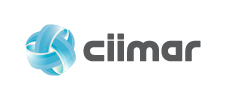
CIIMAR mission is to promote transdisciplinary research, technological development, and training, contributing to advances in scientific knowledge and sustainability of the marine and coastal environments. The centre uses knowledge-based approaches to promote the natural capital and the sustained management of marine resources through monitoring of ecosystems health, optimization of aquaculture, and biotechnological exploitation of the resources for environmental and human health applications. CIIMAR is classified as a Centre of Excellence in Marine Sciences by the Portuguese Science and Technology Foundation, following an international evaluation process. The project involves researchers from the Bioremediation and Ecosystems Functioning (EcoBioTec) research group. EcoBioTec couples fundamental ecology and ecosystems function research with bioprospecting and biotechnology tools for ecosystems recovery, and research to generate essential knowledge to develop biotechnological tools for innovative bioremediation approaches for removal of persistent and emergent pollutants. The group has access to CIIMAR´s new state-of-the-art facilities for research, training and services with well-equipped laboratories, technological core platforms, and cultivation and animal experimental facilities
Website Link:
https://www.facebook.com/ciimar.up.pt
https://www.linkedin.com/company/ciimar/
Team involved
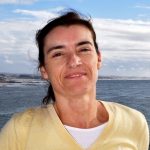 Marisa Almeida
Marisa Almeida
Researcher, Demo site 7
Twitter: https://twitter.com/calmeida_ciimar
Marisa Almeida is a senior researcher at CIIMAR (since 2005) with ca. 80 international publications. With a PhD in Chemistry (obtained in 2003) her main research area is bio and phytoremediation, participating actively in studies that aim to potentiate the use of these biotechnological tools as nature-based solutions to improve and recover aquatic environments contaminated with different pollutants (metals, hydrocarbons, emergent pollutants as pharmaceuticals, microplastics). Her expertise is on environmental chemistry applied to estuarine environments, phytoremediation of contaminants in natural and constructed wetlands and bioremediation of oil spills, coordinating and participating in different national and international projects on these topics. She regularly gives talks to the general public and school students in the frame of CIIMAR outreach projects. She is the leader of the Environmental chemistry and recovery team.
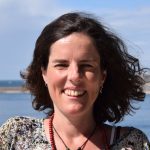 Sandra Ramos
Sandra Ramos
Researcher, Demo site 7
LinkedIn: linkedin.com/in/sandra-ramos-1189a95b
Sandra Ramos has a PhD in Aquatic Sciences and currently is a researcher at CIIMAR and coordinator of CMIA Matosinhos. Her main research area is marine ecology, with special emphasis on early life stages of fishes and impacts of human activities, including emergent pollutants as microplastics. Her research also includes marine ecosystem services and new approaches for environmental assessments, using participatory approaches to capitalize local stakeholder’s knowledge to promote the preservation of marine resources and ecosystems. SRamos has been actively involved in the implementation of EU environmental policies, namely the WFD and the MSFD, giving scientific support to managers and decision-makers. She also participated in several outreach activities with large experience in scientific knowledge-transfer, stakeholders engagement and networking with different social environments, namely academic and scientific community, fishermen, local authorities, policy-makers, environmental managers.
Ana Paula Mucha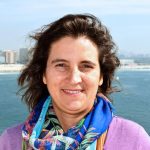
Researcher, Demo site 7
Ana Paula Mucha has a research position at CIIMAR, University of Porto, Portugal, being member of the Board of Directors and the Principal Investigator of the EcoBioTec Group (Bioremediation and Ecosystems Functioning). Also, She is an Invited Assistant Professor at the Department of Biology of Faculty of Sciences of University of Porto. She focus her research on the development of biotechnologic tools for ecosystems recover, based on the ability of autochthonous microorganisms and plants to remove contaminants, through bioremediation and phytoremediation processes. She has relevant expertise in microbiology, microbial ecology and interaction of microorganisms with contaminants. She authored ca. 65 SCI papers including high profile journals such as Bioresource Technology or Environmental Science and Technology. She was the Scientific Coordinator of the CMIA (Environmental Monitoring and Interpretation Centre) of Vila do Conde (2012-2018) and regularly gives talks to the general public and school students in the frame of outreach programs and projects. Moreover, she has been involved ca. 20 national and international projects, being the coordinator of the ongoing project “BIOREM – Bioremediation of hydrocarbon pollutants by autochthonous microorganisms in aquatic environment” funded by FCT.
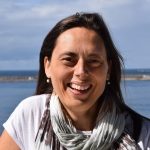 Maria de Fátima Carvalho
Maria de Fátima Carvalho
Researcher
Maria de Fátima Carvalho holds a degree in Microbiology and a PhD in Biotechnology from the Portuguese Catholic University. She is currently Principal Investigator at CIIMAR, where she leads the research team Microbial Biodegradation and Bioprospection. She is also Invited Assistant Professor at the School of Medicine and Biomedical Sciences of the University of Porto. Her research interests are focused on (i) development of biotechnological strategies for the removal of organic environmental pollutants, with special emphasis on fluorinated compounds and (ii) bioprospection of actinobacteria from diverse sources (from terrestrial to marine environments) for the discovery of novel molecules with relevant biotechnological applications. She is author of 61 articles in indexed international journals and participated in more than 20 national and international research projects
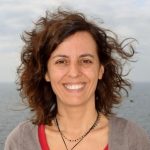 Catarina Magalhães
Catarina Magalhães
Researcher
PhD in Marine Sciences, researcher of CIIMAR, invited assistant professor at University of Porto and member of the coordination committee of Portuguese Polar Program. Her major research is on understanding how microbial derived nitrogen machineries interact and to identify the mechanisms regulating their operation. She focus her research on the impact of pollutants in marine N-biogeochemical pathways and in identifying the environmental constraints and controls on microbial Nitrogen pathways distribution including in extreme environments (Arctic/Antarctica). In the context of her research the methodologies she use are mainly biogeochemical measurements, microbiome sample processing and genomic and metagenomic work flow analysis.
CETAQUA ANDALUCÍA
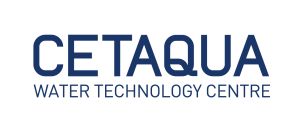
Cetaqua develops technologies and solutions to create a sustainable, safe and accessible water cycle for all, taking into account local needs and for the benefit of our communities. Cetaqua Andalucía was created in 2014 by Hidralia, the University of Malaga (UMA) and the Spanish National Research Council (CSIC). In its two lines of research (Water 4.0 and Water resources management) , Cetaqua seeks new R&D&I solutions in the field of water resource management, with a special emphasis on groundwater, as well as in the field of digital technology, with a focus on the integral water cycle.
Website Link: https://www.cetaqua.com/en/centros/cetaqua-andalusia/
Team involved
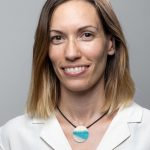 Sara Espinosa
Sara Espinosa
Project Manager
Linkedin: https://es.linkedin.com/in/sara-espinosa-mart%C3%ADnez-52a45126
Sara Espinosa Martínez, holds PhD. studies in Groundwater Recharge (Technical University of Catalonia, 2014) with Cum Laude distinction by means of a FPI grant (BES-2010-039108) framed within the REDESAC project (Recharge and discharge of aquifers, CLG2009-12910-C03-01) financed by the Interministerial Commission on Science and Technology (CICYT). Moreover, Espinosa obtained a Professional Master in Groundwater (Technical University of Catalonia-FCIHS, 2013) and previously a Geological Engineering Degree (Complutense University of Madrid, 2009). She has experince in Water Resources Management and Planning, focusing her investigation on aquifer recharge/discharge and application of hydrogeochemical and isotopic environmental techniques for groundwater characterization. Espinosa has actively and successfully participated in several I+D+i public and private projects within the Water Resources Management and Critical Infrastructure and Resilience Areas, as Project Manager.
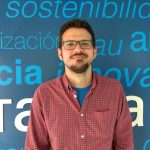
Manuel Argamasilla Ruiz
Technical manager and solutions tranfer
Technical Manager of water resources department in CETaqua, holds an M.Sc. in Water Resources and Environment with distinction and an PhD in modeling Mediterranean/touristic water systems. He has extensive experience in characterizing groundwater bodies status, hydrological/hydraulic modeling and implementation of decision support systems to optimize water allocation in complex river basins. His research interests and activities are focused on the combination of artificial intelligence with a deep understanding of surface and groundwater systems, in the context of climate change. Manuel Argamasilla Ruiz has actively and successfully participated in a series (more than 6, in the last 4 years) of EC co-funded projects (FP7 – DESSIN; LIFE+ – NIRVANA, MATRIX; PRIMA – GOTHAM, MAGO; CLIMATE-KIC – AgriSeasonal, and other) in the areas of Integrated Water Resources Management, Managed Aquifer Recharge, Climate Services, Aquifer Remediation Techniques or Applied Machine Learning, among others, with significant positions of responsibility (Project Manager, Proposal Coordinator and Technical Manager). He has 15 publications in Conference proceedings, Journals and book chapters.
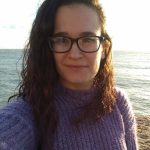 Beatriz Morales
Beatriz Morales
Communication & Financial Reportings
LinkedIn: https://www.linkedin.com/in/beatriz-morales-jim%C3%A9nez-3172a0125/
Degree in Journalism at the University of Málaga. She has two years of experience in European projects related to the environment. Now, she is in the financial department as well.
IHE DELFT

IHE Delft Institute for Water Education is the largest international graduate water education facility in the world and is based in Delft, the Netherlands. The Institute confers fully accredited MSc degrees, and PhD degrees in collaboration with partners. Since 1957 the Institute has provided water education and training to more than 23,000 professionals from over 190 countries, the vast majority from Africa, Asia and Latin America. Also, numerous research and institutional strengthening projects are carried out in partnership to strengthen capacity in the water sector worldwide. Through our overarching work on capacity development, IHE Delft aims to make a tangible contribution to achieving all Sustainable Development Goals in which water is key.
IHE Delft provides a wide range of services to a variety of target groups in developing countries and countries in transition:
i) Education, training and scientific research – for water sector professionals, engineers, scientists, consultants and decision-makers working in the water and environment sectors.
ii) Water sector capacity development – for water sector ministries and departments, municipalities, water boards and water utilities, universities, training and research institutes, industries, non-governmental and private sector organisations.
iii) Partnership building and networking – among knowledge centres, public and private sector organisations.
iv) Standard setting for education and training – for water-related institutions, universities and other education and training agencies in the water sector.
Website Link: https://www.un-ihe.org/
https://www.linkedin.com/company/ihedelft/
https://www.facebook.com/ihedelft
https://twitter.com/ihedelft
https://www.youtube.com/IHEDelftInstituteforWaterEducation
Team Involved
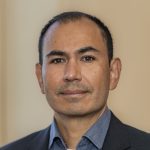 Sergio Salinas,
Sergio Salinas,
PhD, MSc
LinkedIn: https://www.linkedin.com/in/sergio-g-salinas-r/
Sergio Salinas is a desalination and water treatment technology professional and university lecturer with experience in Latin America, Middle East, and Europe.
Sergio has a PhD in Desalination and Water Treatment from the Technical University of Delft (Netherlands), an MSc in Water Supply Engineering from UNESCO-IHE Institute for Water Education (Netherlands), a Master’s in Irrigation and Drainage and a BSc in Civil Engineering from San Simon Major University (Bolivia). He also obtained the University Teaching Qualification in the Netherlands.
He has over 75 publications in international peer-reviewed journals, books and book chapters in top publishing houses, and conference proceedings in the areas of seawater and brackish water desalination, water treatment, water reuse, and natural organic matter characterization. He is a member of the SENSE Research School.
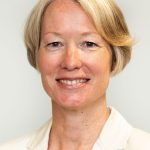 Uta Wehn
Uta Wehn
PhD Msc
Lead of Social Science and Humanities (SSH) methodologies; WP6 lead
Linkedin: (20) Uta Wehn | LinkedIn
Uta Wehn is Associate Professor of Water Innovation Studies and head of the Knowledge & Innovation Studies Development group at IHE Delft. She is a social scientist from the field of science, technology & innovation studies, with a background in ICTs, drawing on more than 20 years of combined industrial, research and international development experience. Her work at the intersection of data and knowledge co-creation, digital innovations and water and environment focuses on the social dynamics of innovation and how to harness digital transformations for participatory environmental governance and sustainable development. Her current projects include case studies in Europe, the Middle East and Africa, using LivingLabs principles and tailoring user-centred and multi-stakeholder co-design methods. She has extensive experience with theoretical and practical aspects of stakeholder engagement and multi-stakeholder interactions in a range of thematic settings and cultural contexts, with >100 publications in peer-reviewed journals, international conference proceedings/reports and book chapters.
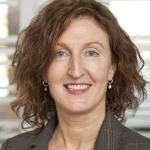 Maria Kennedy
Maria Kennedy
Professor PhD
LinkedIn: https://www.linkedin.com/in/maria-kennedy-48183821/
Maria D. Kennedy is Professor of Water Treatment Technology at IHE Delft. She has over 28 years of experience in education, research, consulting and capacity development in water treatment. During the last 28 years, she has been involved in the supervision of over 200 MSc participants and 22 PhD research fellows in the areas of water quality, groundwater treatment, disinfection, advanced oxidation, surface water treatment, desalination and membrane related technology, natural treatment systems, water reuse, water transport and distribution and biological stability. She has over 150 publications in peer reviewed journals (h index > 34), and she has edited several books/book chapters on various aspects of water treatment.
Professor Maria Kennedy has organized numerous international short courses in the field of desalination & membrane related technology e.g., in Jordan, Palestine, Oman, Bahrain, Israel, St. Maarten, Iran, Yemen, South Africa, Korea and Chile. She is or has been the director of several (large) capacity development projects in the Middle East region e.g., in Jordan, Palestine, Yemen and Iran. She was also involved in several large EU/Horizon 2020 research projects such as EU MEDINA, EU TECHNEAU, EUROMBRA, H2020 MIDES and EU India H20.
Professor Maria Kennedy is a past president of the European Desalination Society (EDS), and Chairman of the board of directors. She was also a member of the Science and Technology Board of the EU Joint Programming Initiative (JPI), and she is a jury member of several prestigious international technology events such as the USAID Water for Food Desalination Prize (2014 – 2015), the Oman Humanitarian Desalination Challenge and the Aquatech Innovation Award.
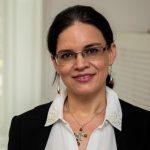 Bertha Vallejo
Bertha Vallejo
Phd, MSc
Lead of task T6.6
Linkedin: https://www.linkedin.com/in/berthavallejo/
Dr. Vallejo is a Senior Researcher at the Knowledge & Innovation Studies Development group at IHE Delft. She is an innovation, science, and technology policy analyst with vast experience in innovation studies and a solid understanding of technology, knowledge, and innovation’s crucial role in the transformative paths followed by local economies in the Global South. She has more than 15 years of research experience in innovation dynamics, social innovation, and stakeholder engagement, as well as a strong record of attracting funding and leading international cooperation projects, particularly in sub-Saharan Africa, where she has acted as both coordinator and researcher.
IT

Instituto de Telecomunicações (IT – https://www.it.pt) is a private, non-profit, association of six Portuguese universities, one polytechnic, one public telecom operator and one telecom equipment manufacturer, established in 1992 with a mission to create and share scientific knowledge in ICT at world level and to host and tutor graduate and post-graduate students. IT earned the statute of Associated Laboratory in 2001.
IT is organized around three main sites: Aveiro, Coimbra and Lisbon with delegations in Covilhã, Leiria, Lisbon and Porto. IT hosts more than 300 (PhD holding) researchers, 7 of which are Fellows of IEEE, and 3 Fellows of the IET, 200 PhD Students and 200 MSc students.
IT expertise spans all areas of telecommunications including wireless and optical communications, networks and multimedia and enabling sciences and technologies from applied mathematics and quantum information, to electronics including organic electronics to instrumentation and measurements. IT is managed by a Board of Directors, and by Site Management Boards.
With cutting-edge laboratories and highly skilled teams, IT has been an active player in some of the major endeavors of ICT, like the pioneering effort in Europe to establish in the nineties the basis for mm-wave cellular mobile communication systems, the standardization of MPEG, the race for all-optical communications or, recently, the global Square Kilometer Array – SKA project.
IT average yearly scientific output includes 15 books, 50 book chapters, 350 journal and 450 conference papers and 10 patents. IT has an accumulated total 4000+ journal papers gathering 43 000+ ISI citations. IT is currently involved in 100 national and 30 international R&D projects. About 20 % of IT patents are being exploited. IT developed technology has already been used to create 6 start-ups.
IT also plays an important societal role by promoting or participating in science awareness initiatives, by transferring knowledge and technology to national and international industry and by providing consulting services in a non-competing basis.
By joining geographically scattered expertise and creating a common culture of excellence, IT managed to create a critical mass, enabling to level with the most influential players in telecommunications, to compete for external funding and get international visibility and recognition.
Website: www.it.pt
Social media: https://www.linkedin.com/company/institutotelecomunicacoes/
Team involved
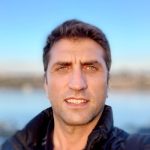 Rodério Nunes Nogueira
Rodério Nunes Nogueira
WP Leader
LinkedIn: https://www.linkedin.com/in/rogerionogueira/
Rogério Nogueira is Principal Research Scientist at IT. He was Professor at Univ. Aveiro and Inst. Polit. Saúde Norte and visiting Professor at UTFPR (BR). Was co-founder of Watgrid SA and Innovation manager at Nokia Siemens Networks and Coriant. He was also General Director of Creative Science Park, aiming to bridge the gap between academia and society.
He is Vice-President/Co-founder of the Portuguese Optical Society and Vice-President of the Portuguese branch of the International Commission for Optics. He is also member elected of the Board of Stakeholders of the Photonics21 PPP.
He has co-authored >400 papers and 8 patents related to optical sensors and communications. Serves the scientific community by being Chair and TPC member of international conferences such as OFC, ECOC, POF or EWOFS and Assoc. Editor in journals. He is expert for international funding programs such as H2020 and Eureka Eurostars or national funds in Portugal, France, Denmark, Cyprus or Latvia. He has an MIT Sloan School Executive Certificate (USA) and a PhD in Physics.
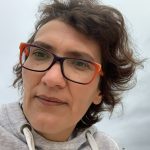 Lúcia Bilro
Lúcia Bilro
Team Member
LinkedIn: https://www.linkedin.com/in/lucia-bilro-a830626/
Bilro (scopus ID 26767560500; ORCID 0000-0001-8804-593X) graduated in Physics from the University of Coimbra, Portugal in 2005 and completed her PhD in 2011 at the University of Aveiro. She is Professor at Physics Department of University of Aveiro and was invited professor at Polytechnic Institute of Viana do Castelo. She is now Researcher at Instituto de Telecomunicações, participating in several projects funded by national and private companies and being PI of three research projects (sWAT (past); INITIATE & Aquaticsens (ongoing)) and Technical Manager of a SME instrument Phase II Project. She is an active person within the community being involved in different activities: she is member of the Portuguese Optical Society for Optics and Photonics ¿ SPOF board, involved in the organization of several international conferences related to photonics and supervisor of several MSc and PhD students. She has experience in the conceptual design and development of fiber Bragg gratings and low-cost optical fiber-based sensors with >100 publications, including book, book chapters, patents and international scientific journals and conferences. Her currently research interests include the design and development of low cost optical fiber components and sub-systems, optical fiber sensing, 3D optical printing techniques, green photonics and environmental monitoring (water quality monitoring).
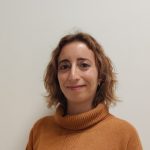
Catarina Novo
Researcher
https://www.linkedin.com/in/catarinanovo/
Catarina Novo graduated in Chemical Engineering (Master) at University of Aveiro and has national and international research experience in both Chemical Engineering and Optical Physics fields.
Catarina worked initially as a researcher at University of Porto on a Chemical Engineering Project related to the pulp and paper industry and later at University of Aveiro and Instituto de Telecomunicações, Aveiro on optical fibre sensors projects. In 2014, Catarina moved to the United Kingdom, Edinburgh, to do her PhD at Heriot-Watt University and to work later as Research Associate. The scope of the PhD research was based on optical fibre (microstructured optical fibres) and ways to functionalize the fibres for optical fibre sensors. Catarina worked as Postdoctoral Research Associate in Precision Laser Machining at Heriot-Watt University and in May 2019 started a similar position in Quantum Communications field within the Institute of Photonics and Quantum Sciences, Heriot-Watt University.
Catarina returned to Portugal in 2021 to join a Postdoctoral Research position at Universidade de Aveiro in the Ceramic and Materials Engineering Department, to work on the formulation and characterization of geopolymers. Later, Catarina joined Instituto de Telecomunicações, Aveiro to work on Photonic Integrated Circuits for Optical Communications. Catarina is now a Researcher within the Optical Devices and Sensors group working on chemical optical fibre sensors.
Catarina has been doing science outreach activities since 2015. She volunteered with Native Scientists for several years, being mentor and project manager, organizing workshops for children. She also has a personal outreach blog where she publishes about science wordsaboutscience.com

Ricardo Oliveira
Ricardo Oliveira received a PhD degree in Physics Engineering from the University of Aveiro, Portugal, in 2017 and an MSc degree in Biomedical Engineering at the University of Coimbra, Portugal in 2010. Ricardo is a Researcher at Instituto de Telecomunicações, Aveiro, Portugal and he develops fiber optic technologies applied to a wide range of sensors and short-range optical communications.
His main research interests are focused on fiber Bragg gratings and long-period gratings, fiber optic interferometers, polymer optical fibers, photonic crystal fibers, fiber post-processing, optical 3D printing, among others. Ricardo has participated in several research projects, acting as PI, co-PI, and team member.
Regarding scientific publications, Ricardo has more than 65+ papers in leading optical journals and conference proceedings. Also, he has been providing teaching activities at the University of Aveiro and he is currently supervising several PhD, MSc and BSc students as well as researchers.
ISSBAT
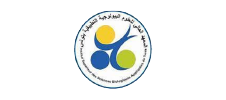 |
| Entity name |
| Short description |
| Links website and social media accounts |
| Work package related |
| Team involved (image, profile and personal linkedin) |
UNIVERSITY OF TECHNOLOGY KAUNAS

Kauno Technologijos Universitetas (Kaunas University of technology) is the largest technical university in the Baltic States. Being one of the most dynamic centres for higher education in Lithuania, KTU is regarded as a research and study leader in various fields. The University has decisively outlined its vision of becoming a strong science and innovation university. It collaborates with the industry, business, NGO and the society sectors from the EU and worldwide, to create, promote, and implement scientific achievements and innovations. KTU also is a member of the European Consortium of Innovative Universities (ECIU). The Institute of Environmental Engineering (APINI) is an integrated part of KTU. Since its establishment in 1991, it has been working as a multidisciplinary research institute and has achieved an international reputation spanning over three decades. KTU APINI has extensive experience in the field of sustainable development research and interregional projects implemented in close cooperation with local/regional/national public authorities and science institutions.
Social media
Website: https://apinien.ktu.edu/
Facebook: https://www.facebook.com/ktu.lt
LinkedIn: https://www.linkedin.com/school/ktu/mycompany/verification/
Youtube: https://www.youtube.com/user/ktuvideo
Instagram: https://www.instagram.com/ktuspace/
Team involved
Jolanta Dvarionienė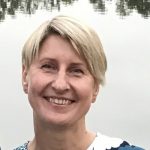
Professor, Chief researcher, Head of Interdisciplinary Centre of Sustainability Research
Website: https://en.ktu.edu/scientist/jolanta.dvarioniene
Linkedin: https://www.linkedin.com/in/jolanta-dvarioniene-053b0a26/
Professor, chief researcher at the Institute of Environmental Engineering, Kaunas University of Technology (KTU), graduated in Chemical Engineering, PhD in Environmental Engineering. She is proficient in conducting scientific research, lecturing and supervising students, providing consultancy to industry, local, regional and national authorities (e.g. resource efficiency and cleaner production, life cycle assessment, renewable energy sources, environmental impact assessments, advising companies and authorities (e.g. on chemicals, resource, water, energy, waste management, etc.), conducting trainings for industries and authorities. She has worked as a project coordinator and senior project researcher for a number of research programs such as the FP5, 6, 7 and the other International and National programmes (Interreg Europe, LIFE etc.). J. Dvarioniene is certified after taking the course ”Advanced LCA with SimaPro“ instructed by Pre Consultants, also a course „Advanced LCA-Consequential Modeling, EIO-LCA, iLUC and Social LCA“instructed by Aalborg University. She is delivering lectures for MSc and PhD students. J. Dvarionienė is an author of more than 70 publications.
SU UNIVERSITY OF STELLENBOSCH
 |
| University of Stellenbosch: |
| Short description |
| Links website and social media accounts |
| Work package related |
| Team involved (image, profile and personal linkedin) |
